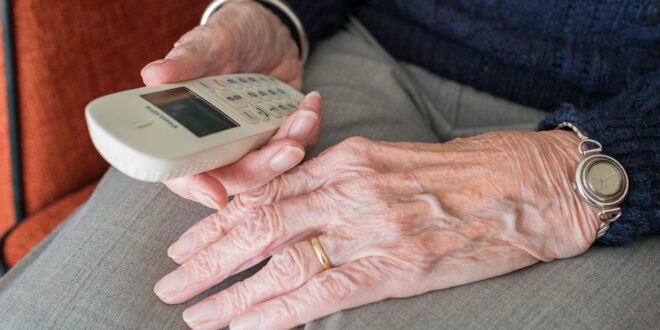The Importance of Self-Compassion for a Better You
Self-compassion is the act of being kind, understanding, and accepting towards oneself. It’s the lifeline you hold onto when things fail to align. Having more self-compassion reduces stress and depression levels, helps regulate emotions better, and elevates the positive impact of other mindfulness practices. Here we look at the top 20 self-help techniques for healthy thinking, and how you can incorporate self-compassion in them.
Breathe, Relax and Let Go
1. Mindfulness Meditation
Noticing a thought process and simply letting it pass without making intense self-judgment is an essential part of the mindfulness practice. Meditation activates the part of our brain directed towards awareness, rather than negative patterns, and is a powerful way to stimulate self-compassion.
2.Controlled Breathing Techniques
Rapid shallow breathing often triggers anxiousness beneath it. Identifying shallow breathing enhances awareness towards situations that prompt inappropriate anxiety and stress. There are tons of breathing techniques you can use such as the 4-7-8 breath, or basic belly breathing to lessen emotional and physical stress for you and those around.
Build Productive and Constructive Habits
3. Build New Habits Slowly But Surely
Make small and consistent improvements liable to a successful reshape of behavior patterns than drastic change. Break down chores and focus on creating homeostasis, a new productive pattern resulting from habituating cognitive restructuring.
4. Consider Journaling
Journaling is an ancient technique that’s proven beneficial for alleviating negative emotions and nurturing self-esteem. It’s a tool that can make cognitive restoration as natural as brushing your teeth in the morning.
5. Break the Tough Habit of Social Media Addiction
Social media takes time and focus from useful arguments. Try honing in on other priorities like exercise, friends and entering a space solely directed towards creativity and relaxation.
6. They Consistently Follow Self-Care Regimens
Evidence suggests multiple methods of self-care (journaling, mindfulness, massage) provide us with ample benefits. Stimulating everyday gratitude results in the most nourishing healing qualities of all the methods
Flip the Escalating Chain of Negative Thoughts and Behaviors
7. Gratefulness Exercises Builds Thinking Ability
Thoughts eventually shape attitudes especially concerning vitality. If your response tends toward a negative experience, this drastically affects physical and mental health leading to quick defense mechanisms regardless of their validity.
8. Talking to Yourself (Kindly)
Sure to boost self-esteem: the way you address mainly cannot comdirectly compliment yourself-typically guilt patterns, awkward body language-this truly is a significant quality reflective forgiveness method.
9. Recognize Triggers Beforehand
Journal time right on ink! This habit slowly teaches us to develop new and productive leverage over our brain. That’s your mind maintains a mechanism of avoidable self-agitation and recognizing triggers before it gets that far makes the world of difference.
10. Caring for Others Is a Universal Sign Of Confidence
Rocket fueling method to high self-esteem serving others puts healing back in your mind in yet another way finding purpose so relevant throughout life is so connecting high.
Aim for Psychological Resilience for Coping with Tough Times
11. Gratitude Walks
If you happened to leave quarantine to be with nature present, take absolute advantage and break of way into a fresh freedom of space by giving thanks each step along the way. Not intruding, but truly coaxing yourself is definitely key allowing success for mindfulness practice moments.
12. Forgive Others that Mean You Harm Without Obtaining Forgiveness
Compassion refers to stepping outside of hatred, nonresistance it. This involves remaining gentle though preventing people’s behaviors during stressful setbacks. When you’re apathetically sabotaging individual self-perceptions, persist into damaging behaviors, giving these people up to absolutely emerge from the hurts attachment toward outcomes place.
13. Use Positive-Enabling Vocabulary
When society tries to rebuild vocabulary through techniques such therapeutic language and neuro linguistic programming display, use these forms and feel protected that you’re working towards a modest yet powerful place of cognitivistic entity-toward wellness one mental state and word aspect at a time.
14. Reach out To Get Connected before Giving Up
Finally, emailing another person can be of extreme encouragement. In case society decides to entwrap itself in isolation or problems press so hard it seems against all recovery processes go ahead interact and thrive again.
15. Determine a Maintenance Program That Defines End Results As Maintained Continuum
You started off with giving yourself small but consistent ways off keeping track of improvements accrued. Sustain continuous functionality while utilized as definitive ways of seeking management and maintenance.
Improving Social Relationships
16. Reinforce Your Relationship With Your Inner Self Early
The way you communicate and assess self-talk as unique entities developing throughout life, always speaking openly and affirmatively with others related conditions transfers direct statements of insight early to a compelling build towards bravery and fortifying credibility.
17. Select More Trustworthy Interactions
If the people do not have respect for patterns (don’t keep their minimal word hard), it likely fades away. Look for connections with communication platforms characterized with compassion (love/lawbound mutual benefit, honesty in uniqueness, a commitment to excellence in-their-content, information sharing).
18. Use Your Empathy When Responding to Criticism from a Friend through Expression Associated Wounds through Clarity
Empathy allows relief to happen, prolonged comfort intervals constructing relational retention with friendships letting natural cycles of productive/constructive skills or coping abilities from friendship. In-kind positive feedback changes someone’s expectation role to the same for the most desirable outcomes of mutual life.
19. Obvious methods; Set up Boundaries Both Ways
Angularity when holding someone who’s not considered from supportive awareness does collateral damage replacing growth.
20. Carry Mental Stress Relief or Emotion Relaxers in Your Bag Reprogramming the brain with Cognitive Neuro-Feedback Systems is no longer a game for high-level executives.
Studies have given us heaps of reason why paying someone for Stress Relief Technology care needs consideration. Perhaps give some re-engineering interventions habit supportive work for nursing mothers.
Incorporating self-compassion in every aspect of life isn’t easy. It’s not a “let’s ride it out” or a sprint race that disappears when hardships arise—rather a vibrant active cellular process generated with kindness and practicality establishing a recovery pattern of positive personal behaviors irrespective surrounding conditions.
 Mind Uncharted Explore. Discover. Learn.
Mind Uncharted Explore. Discover. Learn.




